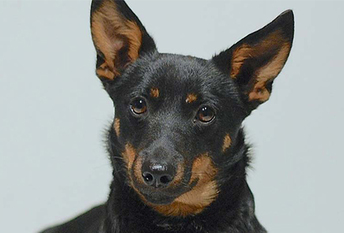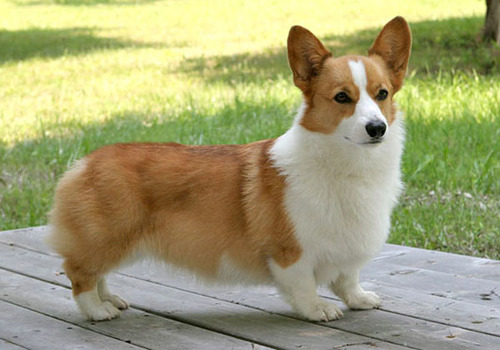Pembroke Welsh Corgis are easy to groom. Their medium-length coat only requires weekly brushing to remove loose and dead hair. Twice a year the Pembroke will shed heavily, and brushing may need to occur several times per week.
Frequently bathing a Pembroke will cause the natural weatherproof oils in the hair to break down, so it is important to the only bath a Corgi as-needed. They are naturally clean dogs, so most owners typically only need to bathe their dogs once every three or four months.
The Corgi's ears should be checked on a regular basis for signs of wax buildup, irritation or infection. Clean them with a cotton ball and a veterinarian-approved cleanser; never use a cotton swab in a dog's ear canal. Teeth should be brushed on a weekly basis to prevent tartar buildup, promote gum health and keep bad breath at bay. Trim nails monthly if the dog does not wear the toenails down naturally outdoors.
A strong, athletic little dog developed to herd cattle and other livestock, the Pembroke Welsh Corgi loves physical activity and is happiest when he has a job to do. Corgis benefit from moderate dailyexerciseto maintain their physical and mental health.
Pembrokes can do well on long walks or slow jogs, but their short legs won’t allow them to keep up with a bicycle rider. Avoid extreme heat or cold, and always provide plenty of cool, fresh water after exercise. Many 5Pembrokes enjoy and excel at canine activities such asagility,herding,obedience, andtrackingevents.
You should feed your Pembroke Welsh Corgi a premium quality dog kibble. As well, these Corgis do well with fish, lamb, poultry, potato, beets, carrots, and barley.
They should do well on high-quality dog food, whether commercially manufactured or home-prepared with your veterinarian’s supervision and approval. Any diet should be appropriate to the dog’s age (puppy, adult, or senior). Some dogs are prone to gettingoverweight, so watch your dog’s calorie consumption and weight level.
Treatscan be an important aid in training, but giving too many can cause obesity. Learn about whichhuman foodsare safe for dogs, and which are not. Check with your vet if you have any concerns about your dog’s weight or diet.Clean, fresh water should be available at all times.
The average life span of the Pembroke Welsh Corgi is 12 to 15 years. Breed health concerns may includedegenerative myelopathy, Ehler-Danlos syndrome (cutaneous asthenia),glaucoma,hip dysplasia,intervertebral disk disease,progressive retinal atrophy, refractory corneal ulceration,cataracts, hypochondroplasia (accepted as a breed standard; short legs but normal-sized skull), renal telangiectasia, ectopic ureters andvon Willebrand’s disease.
Smart and quick-witted, Pembroke Welsh Corgis learn quickly. But even though the breed is intelligent, you’ll still need to implement firm training methods and consistent training sessions to maintain good behavior and skills. As with most dog breeds, you shouldn’t use harsh or negative training methods on your Pembroke Welsh Corgi – it just won’t work and you’ll end up frustrated.
Another thing to keep in mind is that Corgis don’t respond to repetitive training because it gets bored easily. Part of the training should include not to bark at strangers – socialization and obedience training can help this problem. And although the Pembroke Welsh Corgi probably will not respond to commands from strangers, it will respond commands from all family members.
Once properly trained, the Pembroke Welsh Corgi makes good obedience and show dogs once they have been properly trained. This breed is natural herders, so herding trails are a good competition to get involved in.












